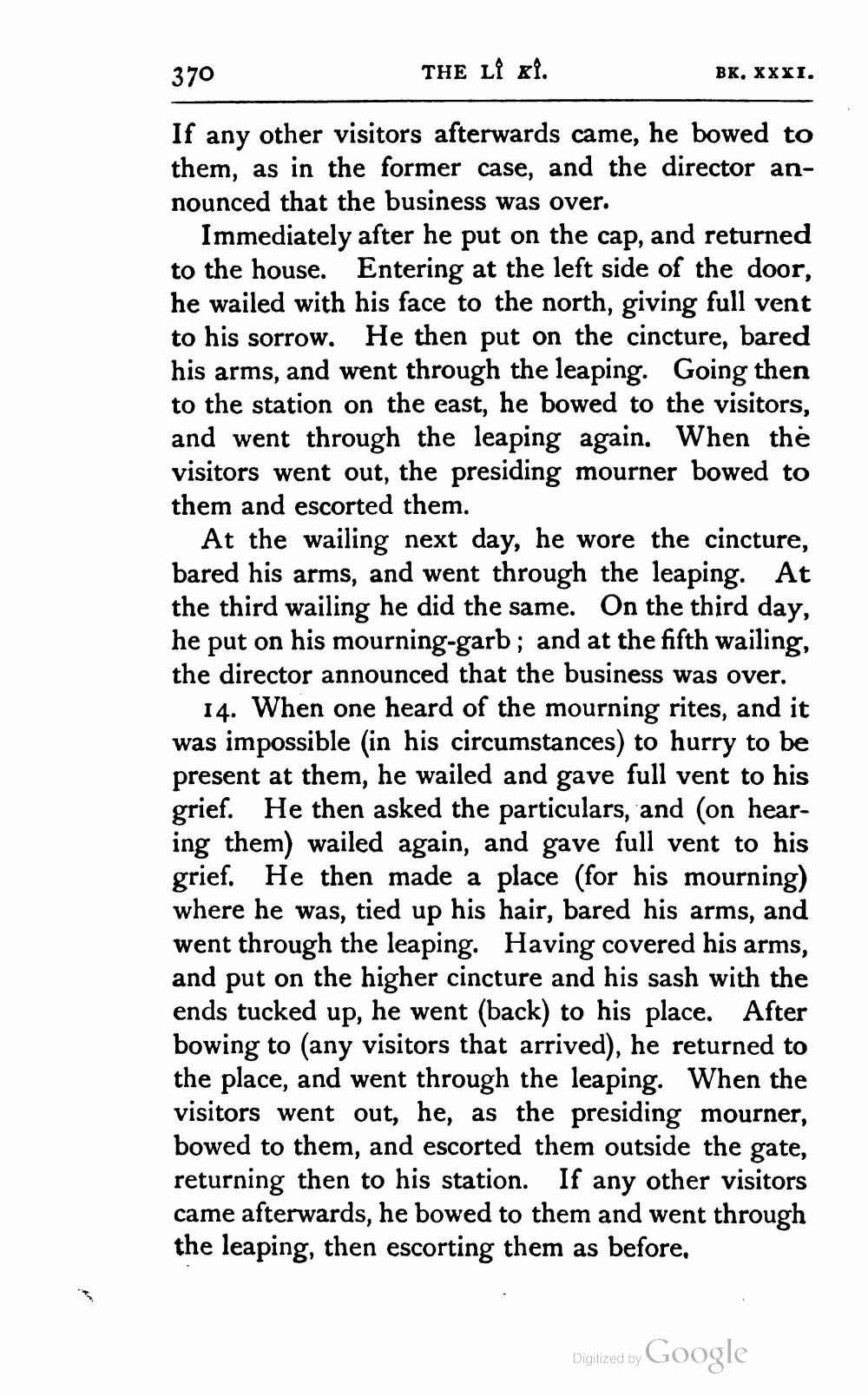________________
370
THE LI XI.
If any other visitors afterwards came, he bowed to them, as in the former case, and the director announced that the business was over.
BK. XXXI.
Immediately after he put on the cap, and returned to the house. Entering at the left side of the door, he wailed with his face to the north, giving full vent to his sorrow. He then put on the cincture, bared his arms, and went through the leaping. Going then to the station on the east, he bowed to the visitors, and went through the leaping again. When the visitors went out, the presiding mourner bowed to them and escorted them.
At the wailing next day, he wore the cincture, bared his arms, and went through the leaping. At the third wailing he did the same. On the third day, he put on his mourning-garb; and at the fifth wailing, the director announced that the business was over.
14. When one heard of the mourning rites, and it was impossible (in his circumstances) to hurry to be present at them, he wailed and gave full vent to his grief. He then asked the particulars, and (on hearing them) wailed again, and gave full vent to his grief. He then made a place (for his mourning) where he was, tied up his hair, bared his arms, and went through the leaping. Having covered his arms, and put on the higher cincture and his sash with the ends tucked up, he went (back) to his place. After bowing to (any visitors that arrived), he returned to the place, and went through the leaping. When the visitors went out, he, as the presiding mourner, bowed to them, and escorted them outside the gate, returning then to his station. If any other visitors came afterwards, he bowed to them and went through the leaping, then escorting them as before,
Digitized by
Google




